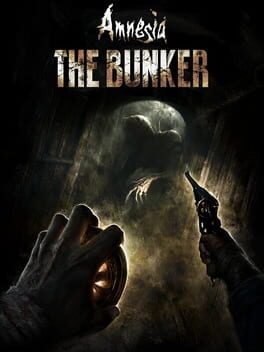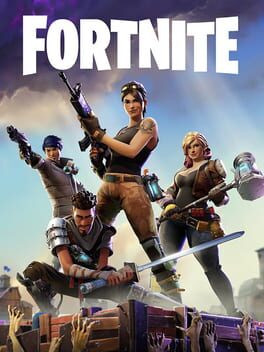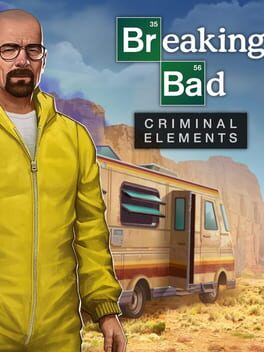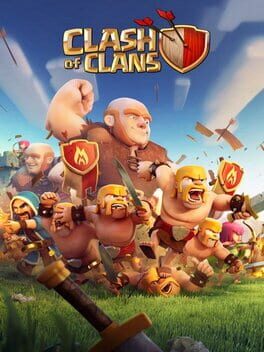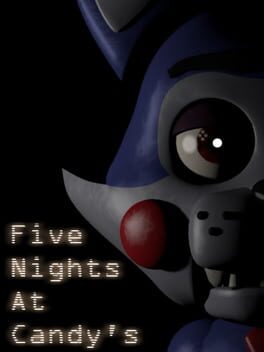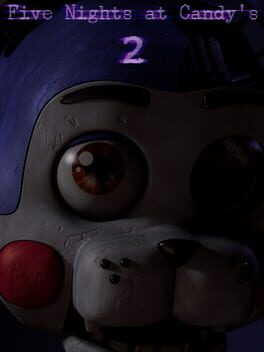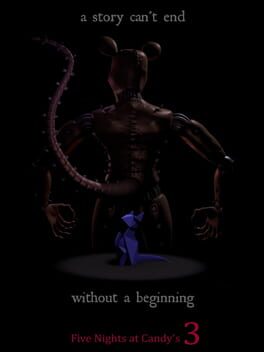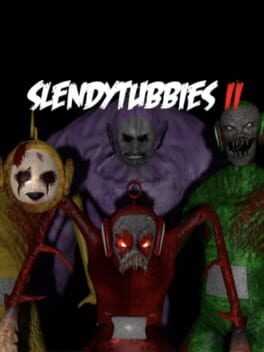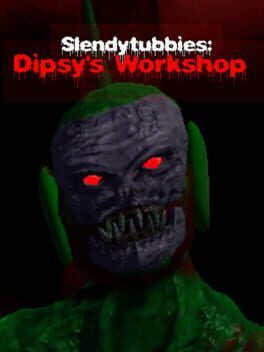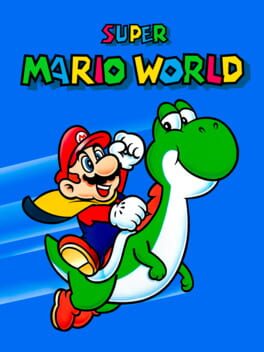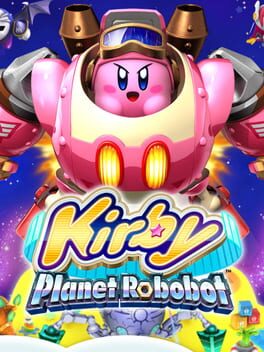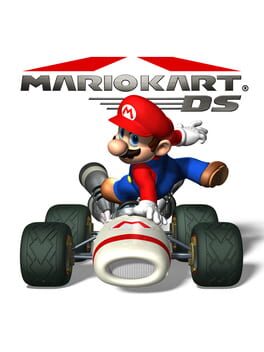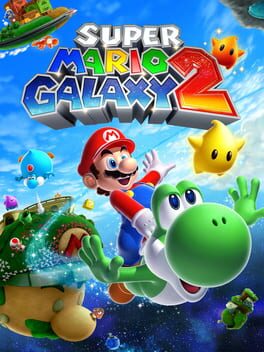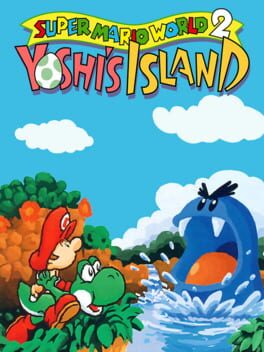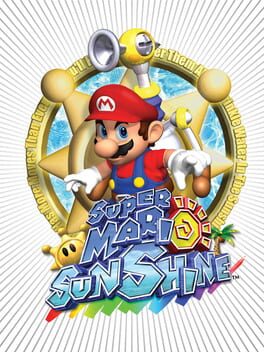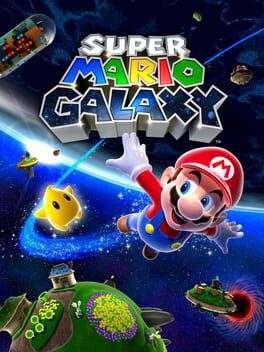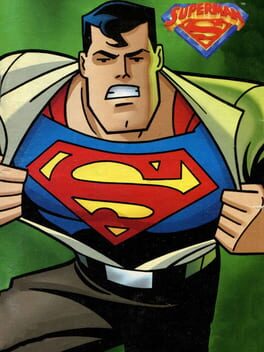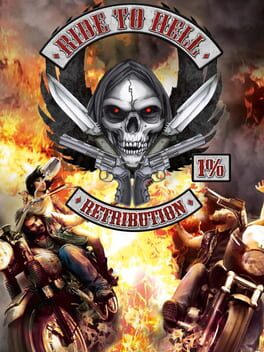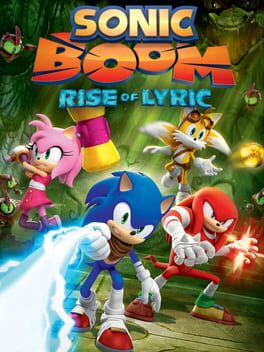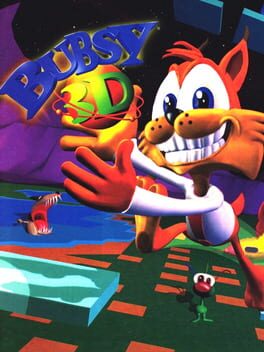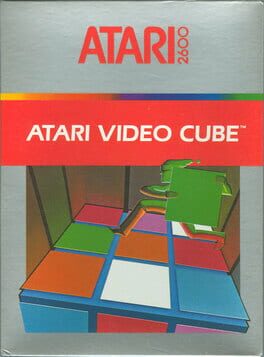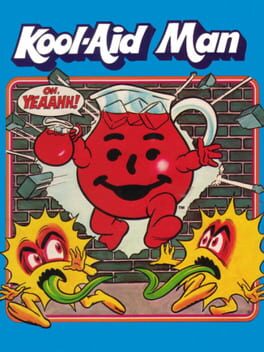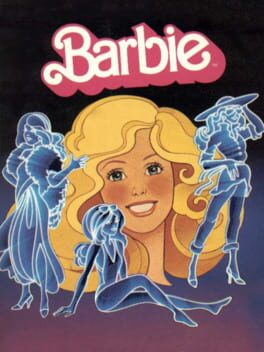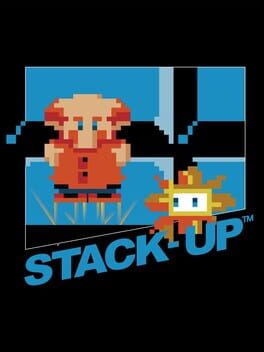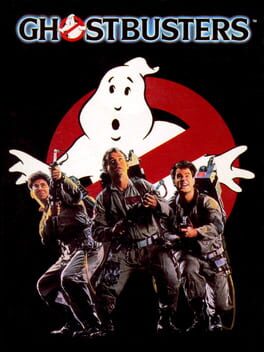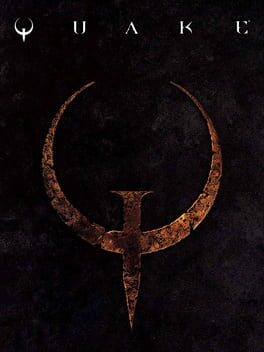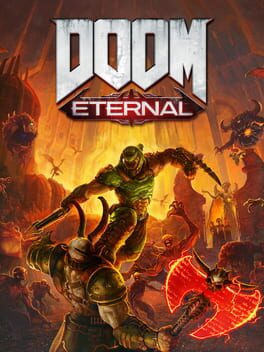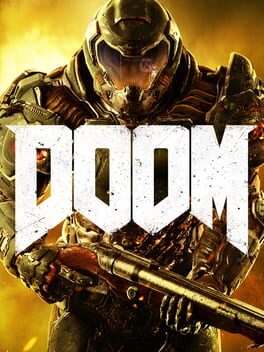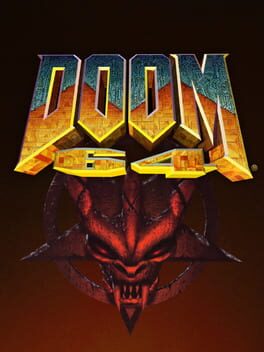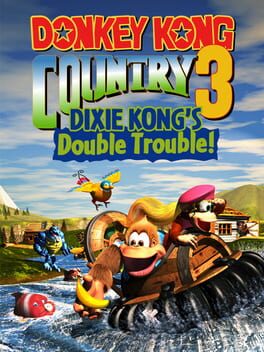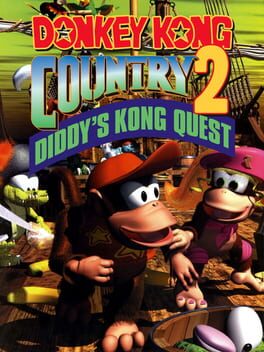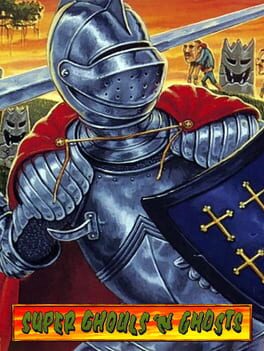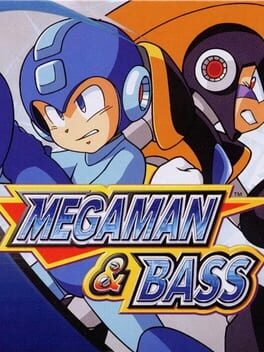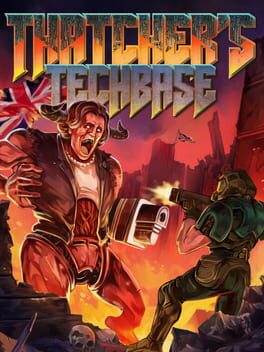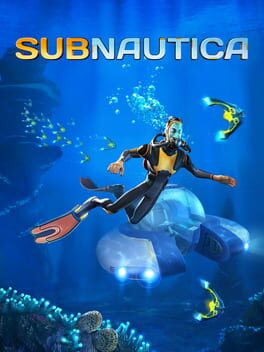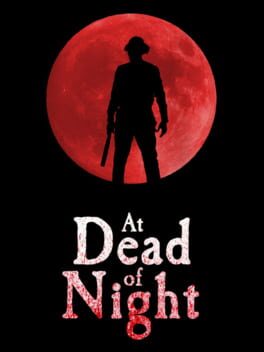Lollycakeman
1454 reviews liked by Lollycakeman
Warning. Long text. This is not a review. Many quotations.
Have you read the warning? Then let's begin.
To be honest, I wasn't going to write a review of this game. There are 3 main reasons.
The first is that I don't think I fully understood MGS2.
I can't say that I understood this difficult game myself, nor that I got the whole picture of MGS2 by thinking for myself. Besides, I thought I only needed to listen to Snake's solution/sermon at the end of MGS2. MGS2 is a fun game, even if it is difficult to understand. It's got a lot of gameplay finesse, cool visuals, and a lot of playful mind. I had no complaints at the time about being able to enjoy an evolution of the classic MGS. I didn't think for a minute that Snake had to be the protagonist. I liked the character Raiden. (I liked him even more in the later MGS4. I haven't played the Rising games, sorry.)
Story in games is certainly an important element.
The story of MGS is interesting, humorous and above all, always surprising. (I like to be surprised, not only in games.) But the great thing about Hideo Kojima, I felt, was that even if you put the story aside, the exploration, ingenuity and fun of the gameplay shone through. That's why, although I was baffled by the story of MGS2, especially at the end of the game, I thought that "the difficulty of the story is just a trivial matter" and that "it's a fun game and, above all, Snake gives the answers, so that's all that matters". At that time, I was not interested in the opinions of others on the internet, so that's all I could think about. As I write this, my opinion has not changed.
Secondly, My total love for the MGS series, including MGS2, is less than you Hideo Kojima(MGS) freaks in international.
I mentioned at the beginning that I was reluctant to write my opinion about MGS2. I'm reluctant to write or talk about this popular series. This is because, from my point of view, there seems to be more passion abroad than there is in Japan. I was even more convinced after the whole disturbance with MGS5. (Not just me, but all the MGS/Hideo Kojima fans in Japan were very surprised by the frankly angry attitude of you international fans towards Konami.)
I've played a lot of Hideo Kojima's work. I've played MGS2 to the point where I've completed dog tags on every difficulty level. But still, if you ask me if I like the MGS series as much as you, the international fans who write the reviews on this site, I can't say yes.
And finally, third reason, which is both the motivation and the purpose of this essay-like writing. In the past, there were enthusiastic Hideo Kojima fans in Japan.
A fervent Hideo Kojima fundamentalist, whom Hideo Kojima himself describes as "my alter ego, my disciple and my teacher". Yes, there were absolute Hideo Kojima freaks in Japan.
Itoh Keikaku/ItohProject.(Real name Itoh Satoshi/伊藤聡)
...At last I can get to the point.
He was a hardcore geek/otaku. He loved foreign films, novels, and was the biggest Kojima Hideo fan in Japan, having studied and reviewed every single one of his works, starting with Snatcher. Half the purpose of this article is to give you a glimpse of the astonishing analysis of MGS2 left behind by the enthusiastic Hideo Kojima fundamentalist, Itoh Keikaku.
The other half is to play a role. ...To be honest, it's hard to write this group of sentences. It's hard work. It doesn't bring in any money. So why am I writing this text? No, this isn't a text. This is a 'bridge'. Or a zip line, a rope, a ladder.
My role here is to act as a bridge between you, the rabid Hideo Kojima fans overseas, and the greatest/strongest Hideo Kojima fan that ever existed in Japan, Itoh Keikaku.
”I don't need a bridge!”
Some of you may say. Then don't bother reading this text, just read the Japanese text at the link below for yourself. (If you have an English translation of any of below sentences, please post a link in the comments section, as they are undoubtedly better than my poor English translations).
Fully translated into English. Bolded text is the part of the main topic that relates to MGS2.
"What is controlled reality?” Itoh Keikaku
When the aircraft crashed into the WTC, I was in hospital watching the footage.
I had just joined the ranks of the crippled at the time. I have just lost my right sciatic nerve and the major muscles in my right thigh, and said goodbye forever to all control and sensation below the knee. Below the knee became a darkman. There were many other issues that needed to be considered. The malignancy that led to this situation in the first place (in short, cancer) had such troublesome issues as metastasize problems and whether ABC and various other forms of hepatitis were latent in the transfused blood. If I metastasize, I don't know if my life will be saved next(or rather, almost no hope.), and if I have hepatitis C, I'll almost certainly develop liver cancer. Furthermore, furthermoree, if I look up the five-year survival rate of the sarcoma that bothered me on the internet, I'll find something like 50-70%.
Frankly, this situation was depressing. I would have been happy if I didn't know, but as soon as I heard the name of the disease, I connected my laptop to the hospital payphone and accessed the internet. I love Cronenberg(lol), and being the kind of person who wants to die knowing exactly what is happening to him, there was no stopping me from wanting to know. See, The Fly, there are? The protagonist is a scientist, so I understand all the grotesque festivities that happen to my body, such as the peeling of the nails and the dissolution of the skin, and I accept that "hmmm, this is what this is all about" and accept my path to becoming a fly man. I mean, what am I talking about(lol).
Nevertheless, once I knew the name of the disease, fear now came to me. Are my parents and doctors telling me the truth in the first place? I was struck by paranoia, almost like a Philip K. Dick's novel. Yeah, this is a bit amazing. After all, it makes me think that everyone involved with me is lying. This is exactly how I feel about Tokyo Total Recall, Rei Fukai being captured by the Jam Human and forced to eat chicken broth. REALLY. The slightest care from a nurse or the casual kindness of a parent would scare the hell out of meeee(lol). See, David Fincher's 'The Game', that Michael Douglas situation.
So I am still living in fear of death. I am certainly a little closer to death than most. I've managed to get out of the Philip K Dick state(I mean, there's no way for me to know if I've been deceived.), but there are many days when 'death' comes at me furiously in the middle of the night and I have to cry under the duvet.
Because I don't want to die at all yet.
I've been in hospital for about 10 days every month for the last year, with anti-cancer drugs in my system. Unlike in the past, recent anti-cancer drugs are not so hard, but the nausea is still strong and hair falls out. What's a bit interesting is that even though I'm dosed each time with an anticancer drug with almost the same ingredients, the hairs that fall out are in different places each time, really. The first time I lost hair, beard, armpit hair, breast hair(lol) and pubic hair, but the second time I lost no hair or beard at all, but instead a lot of nose hair. But at first I was happy. I thought, "I don't have to take care of my hair", but it turned out that this condition is fiercely vulnerable to dust. I can hardly stay in my room, which is the Lidley Scott room(in short, a dusty room), where I can see streaks of light from the window. Ugggghhh.
I have always had asthma and a sultanol inhaler was a must-have. Now I am injected with anti-cancer drugs and fighting the possibility of cancer in my body(maybeeee?). If it had been the beginning of this century without these drugs, I would be dead. It is the drugs produced by science and technology that sustain my existence.
Bodies maintained by science and technology. Bodies that would disappear without science and technology. What this means, in essence, is that I am a cyborg. Not only machine bodies with superpowers are not cyborgs. If not the word 'cyborg', then 'cyborg-like body'. 'cyborg feminism'(wow, I miss it) style thing. Not like Mitsubishi Genentech's 'Sarariman', which has embedded micro-processing equipment (lol). I maintain my body through chemical technology. Incidentally, do you know that the hospital code for anti-cancer drugs is 'chemo'? Chemotherapy, chemical, so chemo. My existence has been predicated on the existence of science and technology from an early age. (On another note, I was apparently born by caesarean section. I was a child who could not have been born without technology.) I was a child who would have disappeared without technology. And I still am.
I am one of the 'children of technology'. I am one of those people who have already demonstrated by their bodies that my lived reality has always been cyberpunk. Of course everyone's life is defined and limited by technology, but I have demonstrated this in my body almost from birth.
The body that is me. Needless to say, I have cancer, and this is a reality that never moves. It is nature itself, because nature is unpredictable and uncontrollable.
For survival, however, I have to anticipate, control and converge with its nature. It is to exclude nature, to construct the world as one in which nature does not exist from the outset. It is an impulse and an ideology rooted in human survival. (Survival is not an instinct, as humans are creatures capable of wishing for death. It is a desire.) Humans have extended their individual viability by assembling models, simulating, predicting, describing and controlling.
MGS2 is about a kind of paranoia. It's a Newtonian delusional pipe dream that says that everything in the world can be reduced to numbers, and therefore everything can be simulated, everything can be observed, everything can be predicted, everything can be controlled. Laplace's demon. The idea that, with infinitely precise data, we can perfectly predict the trajectory of a billiard ball. The delusion that the world is computable. Of course, this is impossible, not to mention quantum mechanics and chaos theory. But MGS2 shows that it is possible, albeit only in a social model.
I've seen some people say that MGS2 itself was just a VR experience for Raiden. That is, "Is this real? Or is it a dream?" It's a philosophical discussion about the definition of reality. I don't need to quote Mamoru Oshii, but I feel that this kind of theme has been depicted so many times in various works that it has already become obsolete. And Raiden does indeed come close to addressing such issues when he says that the Colonel doesn't exist. Another "common story" about people's sense of reality being diminished by virtual reality is told in Raiden's small story about VR training.
"It doesn't matter if this is a dream or not, what you think is real is real." Unfortunately, MGS2 doesn't jump to any of those "often" conclusions. and, nor does it let virtual reality encroach on reality. MGS2 ignores the concluding recipe of the "virtual reality" story. If you've ever said, or thought, that the whole "reality vs. dream" theme is a cliché, good job. If you thought I was saying that "the theme of reality or dreams is clichéd", well, good job, because MGS2 has a unbelievable conclusion that makes that point nullification. And good job to whoever said or thought that the theme of self-discovery was clichéd. Because MGS2 ends with a conclusion that invalidates itself.
With S3, the patriots have been able to control human society from an individual level. It's not about controlling the brain, it's about what kind of events can be accumulated to lead people to do what they want them to do. They have acquired such methods. The story of MGS2 was to test the effectiveness of this method and to establish a version of the protocol that could be used. Everything in human society can be reduced to numbers, and therefore everything can be simulated, everything can be observed, everything can be predicted, everything can be controlled.
Where then is the difference between reality and virtual reality?
Virtual reality does not come to reality. The possibility that this reality may be a virtual reality and that there may be another reality does not matter. MGS2 does not make the question of "what is reality?" a matter of ego perception. It doesn't make it a philosophical question. Because if everything is predictable and controllable, then it is a virtual reality. That this reality is at the same time a virtual reality.
That this reality can be defined as a virtual reality. To violently redefine it as a virtual reality. Such acrobatics are the substance of the idea of the S3.
When Neo realised that this world was a virtual reality, he was led by Morpheus to escape to another "reality". When Moroboshi Ataru realised that this world was only a dream, he returned to the real Tomobiki High School (even though it was also only a dream). But for Raiden and his friends, there is no other world to escape. Because, the "reality" they live in has become a virtual reality, and there is no "another world" to escape to. It is not even allowed to be a dream, no matter how far it goes, like the skin of an onion (which is what Avalon is). This is the story of April 30th, MGS2, the day when this only reality became a virtual reality.
"What is the world when everything can be counted, predicted and controlled?"
After pushing this assumption, MGS2 comes to this conclusion.
It's a virtual reality.
The perception that people already living in a virtual reality. A vision in which reality itself is virtual. This is not the same as some kind of escapism: "This world could be a dream (virtual reality)". It is not the same as the phrase that has been used a thousand times: "There is no such thing as reality."
It's about the fact that even though this world is a virtual reality, it's still real, it's still a unique reality with nowhere to run, and it's still a virtual reality. It is this despair that tints MGS2 to no end.
Shadow Moses Island, the setting of MGS1, was a hollowed-out facility on an isolated island. There was snow, rocks, trees, natural caves and permafrost. MGS2, on the other hand, is a man-made landscape in every way. It place in New York City, and a huge man-made structure floating off the coast. There is nothing in this place that does not involve human hands. At most, there are seagulls flying in the sky. Raiden's fight takes place in a thoroughly artificial environment. Unlike MGS1, which was about genetic determinism (and freedom from it) and was set in a harsh natural environment, MGS2 deals with the determinism of man, by man himself. It was inevitable that the place could only be so thoroughly man-made. There is no longer any need for the word "fate" to demand a god. There is no need for a cosmic mystery or a law of cause and effect. A world in which man predicts and controls himself. There, everything needs to be a product of human thought. Because nature is an unthinkable and therefore inherently uncontrollable and unpredictable factor. To live in a world where everything around you has been created by human hands. That is to say, to live in human thought. Elements that are unpredictable and difficult for humans to control are completely eliminated. There is no need to bring up virtual reality. Because this world is already a virtual reality.
Look around us, how much of it is natural? Is the grass, potted plants, roadside trees and weeds in the car park planted by man 'natural’? Is the river that runs through your neighbourhood a natural river? It is out of the question that some irrigation canals have been built recently, but in fact they may have been used for agriculture in the Showa, Meiji and even Edo periods.
We live surrounded by man-made things. We live surrounded by the environment that we have created by our thoughts. We live surrounded by the results of our thoughts. Why are we all surprised that 5,000 people die in a major earthquake, but not surprised at the huge number of deaths in road accidents per year? It is because nature is a "calamity that has come to pass", an unpredictable factor, whereas road accidents are merely a "socially predictable and acceptable by-product". Earthquakes are natural disasters, but road accidents are the preserve of human thought. That is, we live inside what the human brain has created. The roads, the buildings, the houses, the food, everything is just an artificial product.
Nature is not an entity created by the human brain. Nature is an inherently unpredictable and uncontrollable realm. It is not a symbol. The city is dyed with human thought to every extent. It's no coincidence that MGS2 is set in New York, a city within city.
It's the kind of writing that makes you feel crazy. I felt dizzy right after I read it for the first time. Hideo Kojima himself, who made MGS2, is crazy, but I think it's also crazy for Itoh Keikaku to grasp it so accurately.
Report on the talk show celebrating the publication of "The Chronicles of Itoh Keikaku : Phase 2"
The content of MGS2 was controversial among fans, and Kojima recalls, "I was worried about what Itoh-san would think". Fortunately, Itoh-san had praised MGS2 on his blog, but his blog under fire because he had written that "only I(Itoh Keikaku) could understand this".
Kojima expressed his gratitude and admiration, saying "It's not easy to find fans who continue to fight even in such a situation. The only people who understand what I'm trying to do are Itoh-san and Yano-san. (aka Nojima Hitori)
Since writing the above commentary, he has written commentaries in the limited edition booklets of MGS3 and other titles, and reviews of films, but in 2005 his cancer returned. In the midst of his battle with the disease, he dedicated the rest of his time to creating. This was Genocidal Organ, MGS4's nobelize, Harmony and his last work, The Empire of Corpses.
In an essay written around the same time as Harmony was released in December 2008, he wrote
"Human Story” Itoh Keikaku
https://itoh-archive.hatenablog.com/entry/2015/11/13/170413
"People die. But death is not defeat."
That's what Hemingway once said. What Hemingway meant by winning and losing, I do not know, but I understand what he meant. A man can dwell in another as a story. We can live in someone else's body as a story. It can be told in many ways and become part of a fiction that shapes many other human beings.
It is not only genes that people pass on. People procreate because they seek a familiar other to whom they can tell their own stories. A man begets a child in search of a listener, a most attentive and faithful listener. Listening, of course, is a metaphor, and there are many ways in which a person can tell his story to his children. The "way of life" is a synonym for fiction, and there are as many fictions as there are ways in which parents show their children their lives.
And I, as a writer, tell my own fiction as I write it here. I don't know whether this story will be remembered by you or not. But I'm writing this text because I'm betting on that possibility.
This is me.
This is the fiction that I am.
I want to live in your body.
I want to be passed on to others by your mouth.
About six months after writing this essay, he passed away.
This is a bit of a departure from MGS2, but when I was playing Death Stranding, I often thought about Itoh Keikaku. 'I wonder how he would have critiqued Death Stranding if he had lived longer'. It didn't take long for me to think: "...He'll laugh and do Thumbs up."
When Hideo Kojima looks at the deceased, there's no doubt in his mind that in the forefront is Itoh Keikaku.
He doesn't exist in the world now. But he is here nonetheless.
G.K. Chesterton, the great mystery novelist, wrote in his essay "Democracy of the Dead"
The argument can be summed up in one short sentence: "It is not only those who live now who will determine the country."
It makes sense to me to apply this to games as well. Rather, it seems to me to be far more adaptable than political systems. It's not just the gamers of today who are playing games. Don't the dead enjoy playing games and talking to each other as much as we do? Perhaps some of the reviews on this site have been written by dead people. When I look at the reviews of the MGS series I hear a voice laughing. The voice of Itoh keikaku. Bonkura, silly jokes, and the laughter of otaku laughing themselves silly. When you read his main book, you're pulled in by the surface image and you get the impression that he's all seriousness, but in reality he's a just otaku. Cinephile who loves Monty Python, Fight Club and The Dark Knight. His novels are masterpieces, but it's his geeky, silly short stories and film reviews that I love. Many of the subplots, especially in the Genocidal Organ text, are really ridiculous. The content of the game is really full of bonkurasness: 'Revolver Ocelot makes a cameo appearance', 'Initial D cars appear', and 'last boss mumbles Tokimeki Memorial’s song'. And, "セカイ、蛮族、ぼく。/World, Barbarians and Boku" is the best, and I still laugh out loud every time I read it again. I think, maybe he have written a review on this site.
Oh, I'm not.
I have substance. And, There is no alcohol in this substance.
小島秀夫 @Kojima_Hideo 2011年3月22日
From "The Second Phase of Itoh Keikaku's Chronicle".
”I don't feel comfortable with the word 'blessed'. I don't think there is a nether world, and as an idiom it is too meaningless. I don't think I've ever used the word "blessed" when someone died in all the years I've been writing my diary.
That's what I wrote about in the novelization of Metal Gear. When someone dies, what words should we use to mourn and remember them? I've always used these words.
Thank you very much.”
Thank you, Itoh-san.
From me too, thank you, Itoh-san.
Have you read the warning? Then let's begin.
To be honest, I wasn't going to write a review of this game. There are 3 main reasons.
The first is that I don't think I fully understood MGS2.
I can't say that I understood this difficult game myself, nor that I got the whole picture of MGS2 by thinking for myself. Besides, I thought I only needed to listen to Snake's solution/sermon at the end of MGS2. MGS2 is a fun game, even if it is difficult to understand. It's got a lot of gameplay finesse, cool visuals, and a lot of playful mind. I had no complaints at the time about being able to enjoy an evolution of the classic MGS. I didn't think for a minute that Snake had to be the protagonist. I liked the character Raiden. (I liked him even more in the later MGS4. I haven't played the Rising games, sorry.)
Story in games is certainly an important element.
The story of MGS is interesting, humorous and above all, always surprising. (I like to be surprised, not only in games.) But the great thing about Hideo Kojima, I felt, was that even if you put the story aside, the exploration, ingenuity and fun of the gameplay shone through. That's why, although I was baffled by the story of MGS2, especially at the end of the game, I thought that "the difficulty of the story is just a trivial matter" and that "it's a fun game and, above all, Snake gives the answers, so that's all that matters". At that time, I was not interested in the opinions of others on the internet, so that's all I could think about. As I write this, my opinion has not changed.
Secondly, My total love for the MGS series, including MGS2, is less than you Hideo Kojima(MGS) freaks in international.
I mentioned at the beginning that I was reluctant to write my opinion about MGS2. I'm reluctant to write or talk about this popular series. This is because, from my point of view, there seems to be more passion abroad than there is in Japan. I was even more convinced after the whole disturbance with MGS5. (Not just me, but all the MGS/Hideo Kojima fans in Japan were very surprised by the frankly angry attitude of you international fans towards Konami.)
I've played a lot of Hideo Kojima's work. I've played MGS2 to the point where I've completed dog tags on every difficulty level. But still, if you ask me if I like the MGS series as much as you, the international fans who write the reviews on this site, I can't say yes.
And finally, third reason, which is both the motivation and the purpose of this essay-like writing. In the past, there were enthusiastic Hideo Kojima fans in Japan.
A fervent Hideo Kojima fundamentalist, whom Hideo Kojima himself describes as "my alter ego, my disciple and my teacher". Yes, there were absolute Hideo Kojima freaks in Japan.
Itoh Keikaku/ItohProject.(Real name Itoh Satoshi/伊藤聡)
...At last I can get to the point.
He was a hardcore geek/otaku. He loved foreign films, novels, and was the biggest Kojima Hideo fan in Japan, having studied and reviewed every single one of his works, starting with Snatcher. Half the purpose of this article is to give you a glimpse of the astonishing analysis of MGS2 left behind by the enthusiastic Hideo Kojima fundamentalist, Itoh Keikaku.
The other half is to play a role. ...To be honest, it's hard to write this group of sentences. It's hard work. It doesn't bring in any money. So why am I writing this text? No, this isn't a text. This is a 'bridge'. Or a zip line, a rope, a ladder.
My role here is to act as a bridge between you, the rabid Hideo Kojima fans overseas, and the greatest/strongest Hideo Kojima fan that ever existed in Japan, Itoh Keikaku.
”I don't need a bridge!”
Some of you may say. Then don't bother reading this text, just read the Japanese text at the link below for yourself. (If you have an English translation of any of below sentences, please post a link in the comments section, as they are undoubtedly better than my poor English translations).
Fully translated into English. Bolded text is the part of the main topic that relates to MGS2.
"What is controlled reality?” Itoh Keikaku
When the aircraft crashed into the WTC, I was in hospital watching the footage.
I had just joined the ranks of the crippled at the time. I have just lost my right sciatic nerve and the major muscles in my right thigh, and said goodbye forever to all control and sensation below the knee. Below the knee became a darkman. There were many other issues that needed to be considered. The malignancy that led to this situation in the first place (in short, cancer) had such troublesome issues as metastasize problems and whether ABC and various other forms of hepatitis were latent in the transfused blood. If I metastasize, I don't know if my life will be saved next(or rather, almost no hope.), and if I have hepatitis C, I'll almost certainly develop liver cancer. Furthermore, furthermoree, if I look up the five-year survival rate of the sarcoma that bothered me on the internet, I'll find something like 50-70%.
Frankly, this situation was depressing. I would have been happy if I didn't know, but as soon as I heard the name of the disease, I connected my laptop to the hospital payphone and accessed the internet. I love Cronenberg(lol), and being the kind of person who wants to die knowing exactly what is happening to him, there was no stopping me from wanting to know. See, The Fly, there are? The protagonist is a scientist, so I understand all the grotesque festivities that happen to my body, such as the peeling of the nails and the dissolution of the skin, and I accept that "hmmm, this is what this is all about" and accept my path to becoming a fly man. I mean, what am I talking about(lol).
Nevertheless, once I knew the name of the disease, fear now came to me. Are my parents and doctors telling me the truth in the first place? I was struck by paranoia, almost like a Philip K. Dick's novel. Yeah, this is a bit amazing. After all, it makes me think that everyone involved with me is lying. This is exactly how I feel about Tokyo Total Recall, Rei Fukai being captured by the Jam Human and forced to eat chicken broth. REALLY. The slightest care from a nurse or the casual kindness of a parent would scare the hell out of meeee(lol). See, David Fincher's 'The Game', that Michael Douglas situation.
So I am still living in fear of death. I am certainly a little closer to death than most. I've managed to get out of the Philip K Dick state(I mean, there's no way for me to know if I've been deceived.), but there are many days when 'death' comes at me furiously in the middle of the night and I have to cry under the duvet.
Because I don't want to die at all yet.
I've been in hospital for about 10 days every month for the last year, with anti-cancer drugs in my system. Unlike in the past, recent anti-cancer drugs are not so hard, but the nausea is still strong and hair falls out. What's a bit interesting is that even though I'm dosed each time with an anticancer drug with almost the same ingredients, the hairs that fall out are in different places each time, really. The first time I lost hair, beard, armpit hair, breast hair(lol) and pubic hair, but the second time I lost no hair or beard at all, but instead a lot of nose hair. But at first I was happy. I thought, "I don't have to take care of my hair", but it turned out that this condition is fiercely vulnerable to dust. I can hardly stay in my room, which is the Lidley Scott room(in short, a dusty room), where I can see streaks of light from the window. Ugggghhh.
I have always had asthma and a sultanol inhaler was a must-have. Now I am injected with anti-cancer drugs and fighting the possibility of cancer in my body(maybeeee?). If it had been the beginning of this century without these drugs, I would be dead. It is the drugs produced by science and technology that sustain my existence.
Bodies maintained by science and technology. Bodies that would disappear without science and technology. What this means, in essence, is that I am a cyborg. Not only machine bodies with superpowers are not cyborgs. If not the word 'cyborg', then 'cyborg-like body'. 'cyborg feminism'(wow, I miss it) style thing. Not like Mitsubishi Genentech's 'Sarariman', which has embedded micro-processing equipment (lol). I maintain my body through chemical technology. Incidentally, do you know that the hospital code for anti-cancer drugs is 'chemo'? Chemotherapy, chemical, so chemo. My existence has been predicated on the existence of science and technology from an early age. (On another note, I was apparently born by caesarean section. I was a child who could not have been born without technology.) I was a child who would have disappeared without technology. And I still am.
I am one of the 'children of technology'. I am one of those people who have already demonstrated by their bodies that my lived reality has always been cyberpunk. Of course everyone's life is defined and limited by technology, but I have demonstrated this in my body almost from birth.
The body that is me. Needless to say, I have cancer, and this is a reality that never moves. It is nature itself, because nature is unpredictable and uncontrollable.
For survival, however, I have to anticipate, control and converge with its nature. It is to exclude nature, to construct the world as one in which nature does not exist from the outset. It is an impulse and an ideology rooted in human survival. (Survival is not an instinct, as humans are creatures capable of wishing for death. It is a desire.) Humans have extended their individual viability by assembling models, simulating, predicting, describing and controlling.
MGS2 is about a kind of paranoia. It's a Newtonian delusional pipe dream that says that everything in the world can be reduced to numbers, and therefore everything can be simulated, everything can be observed, everything can be predicted, everything can be controlled. Laplace's demon. The idea that, with infinitely precise data, we can perfectly predict the trajectory of a billiard ball. The delusion that the world is computable. Of course, this is impossible, not to mention quantum mechanics and chaos theory. But MGS2 shows that it is possible, albeit only in a social model.
I've seen some people say that MGS2 itself was just a VR experience for Raiden. That is, "Is this real? Or is it a dream?" It's a philosophical discussion about the definition of reality. I don't need to quote Mamoru Oshii, but I feel that this kind of theme has been depicted so many times in various works that it has already become obsolete. And Raiden does indeed come close to addressing such issues when he says that the Colonel doesn't exist. Another "common story" about people's sense of reality being diminished by virtual reality is told in Raiden's small story about VR training.
"It doesn't matter if this is a dream or not, what you think is real is real." Unfortunately, MGS2 doesn't jump to any of those "often" conclusions. and, nor does it let virtual reality encroach on reality. MGS2 ignores the concluding recipe of the "virtual reality" story. If you've ever said, or thought, that the whole "reality vs. dream" theme is a cliché, good job. If you thought I was saying that "the theme of reality or dreams is clichéd", well, good job, because MGS2 has a unbelievable conclusion that makes that point nullification. And good job to whoever said or thought that the theme of self-discovery was clichéd. Because MGS2 ends with a conclusion that invalidates itself.
With S3, the patriots have been able to control human society from an individual level. It's not about controlling the brain, it's about what kind of events can be accumulated to lead people to do what they want them to do. They have acquired such methods. The story of MGS2 was to test the effectiveness of this method and to establish a version of the protocol that could be used. Everything in human society can be reduced to numbers, and therefore everything can be simulated, everything can be observed, everything can be predicted, everything can be controlled.
Where then is the difference between reality and virtual reality?
Virtual reality does not come to reality. The possibility that this reality may be a virtual reality and that there may be another reality does not matter. MGS2 does not make the question of "what is reality?" a matter of ego perception. It doesn't make it a philosophical question. Because if everything is predictable and controllable, then it is a virtual reality. That this reality is at the same time a virtual reality.
That this reality can be defined as a virtual reality. To violently redefine it as a virtual reality. Such acrobatics are the substance of the idea of the S3.
When Neo realised that this world was a virtual reality, he was led by Morpheus to escape to another "reality". When Moroboshi Ataru realised that this world was only a dream, he returned to the real Tomobiki High School (even though it was also only a dream). But for Raiden and his friends, there is no other world to escape. Because, the "reality" they live in has become a virtual reality, and there is no "another world" to escape to. It is not even allowed to be a dream, no matter how far it goes, like the skin of an onion (which is what Avalon is). This is the story of April 30th, MGS2, the day when this only reality became a virtual reality.
"What is the world when everything can be counted, predicted and controlled?"
After pushing this assumption, MGS2 comes to this conclusion.
It's a virtual reality.
The perception that people already living in a virtual reality. A vision in which reality itself is virtual. This is not the same as some kind of escapism: "This world could be a dream (virtual reality)". It is not the same as the phrase that has been used a thousand times: "There is no such thing as reality."
It's about the fact that even though this world is a virtual reality, it's still real, it's still a unique reality with nowhere to run, and it's still a virtual reality. It is this despair that tints MGS2 to no end.
Shadow Moses Island, the setting of MGS1, was a hollowed-out facility on an isolated island. There was snow, rocks, trees, natural caves and permafrost. MGS2, on the other hand, is a man-made landscape in every way. It place in New York City, and a huge man-made structure floating off the coast. There is nothing in this place that does not involve human hands. At most, there are seagulls flying in the sky. Raiden's fight takes place in a thoroughly artificial environment. Unlike MGS1, which was about genetic determinism (and freedom from it) and was set in a harsh natural environment, MGS2 deals with the determinism of man, by man himself. It was inevitable that the place could only be so thoroughly man-made. There is no longer any need for the word "fate" to demand a god. There is no need for a cosmic mystery or a law of cause and effect. A world in which man predicts and controls himself. There, everything needs to be a product of human thought. Because nature is an unthinkable and therefore inherently uncontrollable and unpredictable factor. To live in a world where everything around you has been created by human hands. That is to say, to live in human thought. Elements that are unpredictable and difficult for humans to control are completely eliminated. There is no need to bring up virtual reality. Because this world is already a virtual reality.
Look around us, how much of it is natural? Is the grass, potted plants, roadside trees and weeds in the car park planted by man 'natural’? Is the river that runs through your neighbourhood a natural river? It is out of the question that some irrigation canals have been built recently, but in fact they may have been used for agriculture in the Showa, Meiji and even Edo periods.
We live surrounded by man-made things. We live surrounded by the environment that we have created by our thoughts. We live surrounded by the results of our thoughts. Why are we all surprised that 5,000 people die in a major earthquake, but not surprised at the huge number of deaths in road accidents per year? It is because nature is a "calamity that has come to pass", an unpredictable factor, whereas road accidents are merely a "socially predictable and acceptable by-product". Earthquakes are natural disasters, but road accidents are the preserve of human thought. That is, we live inside what the human brain has created. The roads, the buildings, the houses, the food, everything is just an artificial product.
Nature is not an entity created by the human brain. Nature is an inherently unpredictable and uncontrollable realm. It is not a symbol. The city is dyed with human thought to every extent. It's no coincidence that MGS2 is set in New York, a city within city.
It's the kind of writing that makes you feel crazy. I felt dizzy right after I read it for the first time. Hideo Kojima himself, who made MGS2, is crazy, but I think it's also crazy for Itoh Keikaku to grasp it so accurately.
Report on the talk show celebrating the publication of "The Chronicles of Itoh Keikaku : Phase 2"
The content of MGS2 was controversial among fans, and Kojima recalls, "I was worried about what Itoh-san would think". Fortunately, Itoh-san had praised MGS2 on his blog, but his blog under fire because he had written that "only I(Itoh Keikaku) could understand this".
Kojima expressed his gratitude and admiration, saying "It's not easy to find fans who continue to fight even in such a situation. The only people who understand what I'm trying to do are Itoh-san and Yano-san. (aka Nojima Hitori)
Since writing the above commentary, he has written commentaries in the limited edition booklets of MGS3 and other titles, and reviews of films, but in 2005 his cancer returned. In the midst of his battle with the disease, he dedicated the rest of his time to creating. This was Genocidal Organ, MGS4's nobelize, Harmony and his last work, The Empire of Corpses.
In an essay written around the same time as Harmony was released in December 2008, he wrote
"Human Story” Itoh Keikaku
https://itoh-archive.hatenablog.com/entry/2015/11/13/170413
"People die. But death is not defeat."
That's what Hemingway once said. What Hemingway meant by winning and losing, I do not know, but I understand what he meant. A man can dwell in another as a story. We can live in someone else's body as a story. It can be told in many ways and become part of a fiction that shapes many other human beings.
It is not only genes that people pass on. People procreate because they seek a familiar other to whom they can tell their own stories. A man begets a child in search of a listener, a most attentive and faithful listener. Listening, of course, is a metaphor, and there are many ways in which a person can tell his story to his children. The "way of life" is a synonym for fiction, and there are as many fictions as there are ways in which parents show their children their lives.
And I, as a writer, tell my own fiction as I write it here. I don't know whether this story will be remembered by you or not. But I'm writing this text because I'm betting on that possibility.
This is me.
This is the fiction that I am.
I want to live in your body.
I want to be passed on to others by your mouth.
About six months after writing this essay, he passed away.
This is a bit of a departure from MGS2, but when I was playing Death Stranding, I often thought about Itoh Keikaku. 'I wonder how he would have critiqued Death Stranding if he had lived longer'. It didn't take long for me to think: "...He'll laugh and do Thumbs up."
When Hideo Kojima looks at the deceased, there's no doubt in his mind that in the forefront is Itoh Keikaku.
He doesn't exist in the world now. But he is here nonetheless.
G.K. Chesterton, the great mystery novelist, wrote in his essay "Democracy of the Dead"
The argument can be summed up in one short sentence: "It is not only those who live now who will determine the country."
It makes sense to me to apply this to games as well. Rather, it seems to me to be far more adaptable than political systems. It's not just the gamers of today who are playing games. Don't the dead enjoy playing games and talking to each other as much as we do? Perhaps some of the reviews on this site have been written by dead people. When I look at the reviews of the MGS series I hear a voice laughing. The voice of Itoh keikaku. Bonkura, silly jokes, and the laughter of otaku laughing themselves silly. When you read his main book, you're pulled in by the surface image and you get the impression that he's all seriousness, but in reality he's a just otaku. Cinephile who loves Monty Python, Fight Club and The Dark Knight. His novels are masterpieces, but it's his geeky, silly short stories and film reviews that I love. Many of the subplots, especially in the Genocidal Organ text, are really ridiculous. The content of the game is really full of bonkurasness: 'Revolver Ocelot makes a cameo appearance', 'Initial D cars appear', and 'last boss mumbles Tokimeki Memorial’s song'. And, "セカイ、蛮族、ぼく。/World, Barbarians and Boku" is the best, and I still laugh out loud every time I read it again. I think, maybe he have written a review on this site.
Oh, I'm not.
I have substance. And, There is no alcohol in this substance.
小島秀夫 @Kojima_Hideo 2011年3月22日
From "The Second Phase of Itoh Keikaku's Chronicle".
”I don't feel comfortable with the word 'blessed'. I don't think there is a nether world, and as an idiom it is too meaningless. I don't think I've ever used the word "blessed" when someone died in all the years I've been writing my diary.
That's what I wrote about in the novelization of Metal Gear. When someone dies, what words should we use to mourn and remember them? I've always used these words.
Thank you very much.”
Thank you, Itoh-san.
From me too, thank you, Itoh-san.
today marks the 20th anniversary of metal gear solid 2's release, and hideo kojima tweeted a bit in memory of developing the game so long ago. one tweet in particular stuck out to me though:
"LIBERTY and FREEDOM have different meanings, and MGS2 is not about singularity, but about the 'norms' of society having a will of their own."
the year before the release of mgs2, the norms that maintain the social fabric of the United States briefly reared their head to the public. the 2000 presidential election resulted in a contested florida count; a week-long war where the soldiers were lawyers and county election officials. the supreme court eventually stepped in and settled the matter out of the hands of the voters who supposedly drove the process in the first place, and the culture managed to digest this aberration of electoral procedure cleanly. when a much sillier repeat of this strategy took place 20 years later, there was little discourse about its relation to a time when a party actually did manage to steal an election openly with no consequence.
the point of the above is not to bemoan the "unfairness" of the situation (the choice did not really matter to the american people) but to observe how the american ideological ship rights itself even when it openly contradicts itself. much of our "freedom" yields from america's supposedly democratic structure allowing citizens to exert themselves politically, even as voting is shown to be vapid ritual and direct action is suppressed at every opportunity. yet even when these truths are so plainly evident, the shadow of american capital obscures or supplants the truth as necessary to keep the citizenry proud of the "liberty" they hold. kojima rationalizes this the work of artificial intelligence; a neural network kept fat off of the endless drip of online content, and trained to filter information for the benefit for international capitalist hegemony. the economic engine of the west's security far exceeds the abilities of any group of humans to protect, and must be handled by some sort of higher power; an omniscient american consciousness whether as a group of AIs inside an underwater fortress or a commmon understanding woven into us by the superstructure we exist in.
of course, I don't want to imply that all of the above came directly out of kojima's mind onto the page, especially since I find praises of games such as these to be inherently "anti-capitalist" to be cope in a lot of ways; the text simply does not have any coherent critique of capitalism itself. kojima has stated (paraphrased by tim rogers) that the plot here is "merely a jumble of things inspired by current events," and not a "postmodern literary statement." the thematic undercurrent of this game sometimes struggles to poke its head through all of the mess of plot elements at play: otacon cuckolding his father, the peter stillman false injury subplot, rose's desperate attempts to crack raiden's hardened exterior, the vampire who is lovers with a marine commander and then moves on his daughter who may or may not be able to deflect bullets, and revolver ocelot having liquid snake's personality inside his arm for some reason. what's unquestionable though is that kojima has a keen mind for rooting out legitimately disturbing facets of US hegemony and exposing them within his work both narratively and through the game mechanics.
much of this relies on raiden, or jack, the hapless operator commanded to infilitrate the big shell and rescue the president. his mission: to play in a role in a cataclysmic test that will prove that the patriots (the aforementioned norms, the ideological backbone of america) can organically influence the actions of people via tight control of the information given to them. part of this game's infamous obtuseness revolves around the fact that not only has raiden been misled by his supervisors, but the people he interacts with friend or foe also are acting on false information different than what raiden has. there are instances where raiden will parrot off the plot up to a given point and will be met with incredulous looks by whoever he's talking to that never remotely get resolved, and piecing together the real plot from this can be difficult. his main enemy: solidus snake, a man who has upheld the status quo of america both abroad in brutal secret military actions in africa as well as domestically as president of the united states. this is a man who has seen the superstructure and seeks to gain true liberty in transcending it; he's a man who has seen the true face of God and must be killed. even as raiden struggles to sort through his thoughts regarding all of this, he's pushed to duel solidus to the death to fulfill the patriots orders, and he has no choice in the matter. the patriots have organized the game for him and he (as the player's proxy) must participate. raiden has no alternate options, as his future is bound to the player's performance within the scope of the game, and he cannot disobey his direct inputs.
perhaps the best illustration of raiden's construction of consciousness over the course of the game is in the arsenal gear section. raiden up to now has been chasing the identity of snake for some time, both literally as he trails behind snake's actions within the game and conceptually as the patriots program the environment around him to resemble the shadow moses incident. after being tortured within the bowels of arsenal gear, raiden is released fully nude and must evade capture as he undergoes a sort of peristalis within AG's intestines. as he proves himself competent after shedding his loadout (mechanically inherited from snake), the real snake bestows upon him an identity of his own: a katana that becomes raiden's primary combat weapon for the final sections of the game. raiden's literal play mechanics develop beyond the idea of snake in this moment thanks to a clever design choice by the developers: the katana uses the previously unused right stick to control its slashes and actions. up to now players are unconsciously playing as snake to some extent, as raiden's control layout has matched snake's MGS1 layout. it is now that players learn how to play as raiden and how he functions as a character beyond the shadow of snake, as he self-actualizes both narratively and within the scope of the game's mechanics.
I don't know if the critical gaming institution was ready to accept the confidence mgs2 brought when it came out, however. obviously the character bait-and-switch turned off those who played solely to become snake; perhaps raiden was an ugly reflection in some ways, as an awkward and lithe protagonist with only virtual combat experience to speak of. the sheer complexity and inexplicable loose ends of the story turned off many more who were willing to explore what kojima has created, including the translator herself: Agness Kaku. even though I disagree with her critique of the script, I do not envy the draconian word count requirements that konami held her to or the strict 1:1 localization requirements kojima enforced after jeremy blaustein's creative liberties in the excellent translation of the first game. the result here is a script that is stilted and cumbersome compared to the snappy script of the original, which I'm sure turned off even more people than mentioned before. it's taken many years to truly cleanse mgs2's mixed reputation for those who originally experienced it: as an example, while I tend to like jeremy parish's work, his writing on mgs2 captures a snide attitude towards this game that has not aged well, whereas his more recent analysis of the game on retronauts has begun praising its prescience of modern american political life as he's reexamined the game, a move I applaud him for as a prominent games critic and historian.
in fact, it's parish's criticism of mgs2's gameplay that I want to use as a launching point to discuss the game's amazing stealth action, which really cements this title as one of the best games ever made in my eyes. mgs2 falls in a difficult spot between mgs1, arguably the first modern AAA game, and mgs3, a game with remarkably few restraints on player expression and another GOAT contender. it's hard for me to argue that mgs2 is better than mgs3; mgs2 is a leaner experience while mgs3 is a much more convoluted web of systems to memorize and clunky controls, but mgs3 is a pure stealth experience in terms of environment and scenario design in a way that mgs2 cannot approach. what mgs2 is not, however, is a rehash of mgs1, as parish's writing (linked below) accuses it of. while there are certainly similar aspects between events in mgs2 and mgs1, mgs2 builds upon these ideas to present something completely new for the genre. mechanically mgs2 is a perfect midpoint between 1 and 3 that rewards player ingenuity and quick decision-making within the bounds of the top-down format and segmented area structure of the original title.
mgs2 brings two major innovations to the series: first-person aiming and the AI squad system. guns in mgs1 are functionally useless outside of the many annoying action setpieces throughout the game, as the aiming is non-existent and there's no way to quickly take down guards with weapons. in that game this flaw is papered over by the fact that guards lack much any critical thinking beyond looking at anything directly within their cone of vision, and thus the game encourages sneaking behind enemies. in mgs2, you now have the ability to headshot or crotchshot enemies for quick takedowns, and with this power comes a slew of challenges that force the player to use this tool effectively. the game stations guards in locations that often actively keep you from slipping past them as a casual player, either from having other guards watch their back, or from patrolling areas that make your footsteps clearly audible, or by putting mission objectives in positions where guards block you at every turn from accessing them. to make matters more complicated, tranquilizing or killing a soldier leaves their body behind, which if seen by another soldier can quickly reveal your presence even if you are on the other end of the map. body disposal becomes an essential and nerve-racking endeavor that is further exacerbated by the fact that dragging bodies is slow, and stunned enemies will eventually wake again. rooms become a matter of determining which soldiers risk mission integrity the most when active, how to best deal with them, and how to hide them in such a way that you have just enough time to achieve your objective before the body is found.
further complicating matters, the squad in each room now does routine check-ups on one another to ensure the team has not been comprimised, as well as calling into HQ regularly to provide status updates. making an incorrect decision can have an extremely costly result if the squad becomes suspicious and calls in a search team to sniff you out; the most frightening parts of this game come from hiding in lockers or under cabinets praying that a search team will get lazy when they reach your location and leave you be. this also implements a hidden timer after you eliminate a guard, where your next objective must be finished before the rest of the squad catches wind of the fact that one of their own is missing. even worse is eliminating a squad leader, which could result in HQ realizing that no regular status report was radioed in and thus sending in a team to determine the status in person. it's a delicate interplay between all these mechanics, as any advantage you can gain over the forces against you can be lost just as quickly if you have not planned further movements in advance. taking out guards one by one linearly is simply not an option: you must consider the totality of your environment, plan accordingly, and then execute said plan correctly, often with elements you didn't consider interfering and forcing you into hiding mere meters away from your objective. it is endlessly claustrophobic on first attempts of this game, and truly imposes a sense of dread upon being discovered that I don't think other entries in this series ever capitalized on in the same way. of course, as you grow more experienced, you begin to find ways to push against these restrictions, and to the game's credit it offers a bounty of built-in ways to exploit the guards. shooting a soldier's radio or throwing a chaff grenade jams their tether to HQ and keeps them from calling for reinforcements even in the event that they encounter you, for instance, and you can hold up guards for free takedowns and to lead them away from other guards in the vicinity. steam pipes can be broken to scald guards, cameras can be shot to free up your traversal options, fire extinguishers can serve as makeshift smoke grenades, and you can even drop onto unsuspecting soldiers from a ledge in order to get an instant knockout. what makes this game different is no matter how far you push, the game will still find ways to punish you if you choose to lollygag given the ever-watchful eye of HQ upon you. your job is to catalog your available tools in your mind, use them when appropriate, and plan out your goals in advance as to avoid wasting time once you've begun interacting with the environment.
in terms of macro-design mgs2 also leapfrogs mgs1 to provide area layouts that take advantage of the new tools as well as encourage more exploration. mgs1 lays out its areas in straight lines in both discs of the game, making backtracking a bore, especially during sections such as retrieving the sniper rifle or using the temperature-controlled key cards. mgs2 areas are still heavily enclosed, but feature a greater amount of interconnectivity that allows the player to choose their routes, or for different difficulties to change which routes are accessible to the player when. in the two main open hubs in the game - the tanker area as well as Strut A of big shell - the player can freely travel between areas for the most part while still being naturally led to the next objectives. it helps that each area is roughly symmetrical, and as such the player need not struggle with understanding a complicated interconnected map. after the harrier fight, the game linearizes and begins focusing on more setpieces rather than full stealth sections, but after a more freeform first ~60% of the game this doesn't bother me much.
the environments themselves strike a radically different vibe than mgs1, which focused on snake clawing through the darkness of alaska juxtaposed against the glittering snow blanketing the island of shadow moses. big shell instead feels sterile, with its position far out into the hudson bay removing it from any spatial context as it sits above the water surrounded by mist. I sympathize with those who don't like this setting and its palette, as shadow moses is unquestionably the more memorable area. my interpretation of big shell is that its built purposefully as a "game-y," flat area; a training ground of sorts for raiden. the interiors ignore the oppressive chill of shadow moses in order to present an lifeless area that illustrates the banality of the villainy involved, and the clean order that the patriots impose. it's only as the game continues and the pageant the patriots have created begins to decompose that the aseptic facade collapses and raiden must overcome flooded hallways full of bloated bodies, flaming remannts of catwalks, and the blaring sirens of arsenal gear as he cleaves bodies in two and struggles against the framework imposed upon him.
one aspect where mgs2 is notably rushed is the boss selection: the main enemy organization Dead Cell has multiple members that evidently were cut in development even though they get brief mentions in the lore. unlike mgs1 where many of the fights are based in specific gimmicks, the bosses in mgs2 are spaced out much more and generally have multiple methods for how to take them down. the fatman fight always sticks out to me, both in sheer ridiculousness and in how it balances defusing the bombs fatman puts down with actually damaging him. balancing those two mechanics makes the fight more than just dodge-and-shoot, which is a fine design for a mgs fight but not always the most interesting. other fights such as olga and vamp sort of fall into the latter category, and then the rest feel a bit more gimmicky, generally leaning on some sort of non-standard weaponry. they're all good, but I wouldn't call them as memorable as the two games that sandwich it in the series, especially mgs3.
of course, there is much I haven't touched on in this review that I could continue to offer my thoughts on, such as the way the game begins violently rejecting the player from even playing it as they attempt to bend against the will of the patriots, or the way the game uses parallel events between mgs2 and mgs1 to confuse the player rather than give them some cynical "I get the reference" moment. perhaps this game's status as a "postmodern" masterpiece is simply because no other game has ever achieved this level of ludonarrative coherence, where the act of playing the game itself is relevant to the plot and subtextually reinforces the themes presented in the text. it's one thing to have fourth wall breaks, especially after the twists in this game were subsumed by gaming mass media and diluted into sillier configurations, but this game refuses to use them only as parlor tricks and instead weaves them into a broader narrative about the control of information and individual agency that resonates at a time when people are hyperaware of the context of their era and yet absolutely powerless to influence it. it's a game where even multiple legendary soldiers are unable to buck machinations of a country that are entirely beyond them, and where they must live with this doomed knowledge whether they choose to feebly resist it or not. in many ways, this is a game that was far ahead of its time and lacks an inheritor of its legacy as both one of the most fantastic action games ever created and one of the few titles that capitalizes on video game's unique traits as an equal form of art and sport.
"LIBERTY and FREEDOM have different meanings, and MGS2 is not about singularity, but about the 'norms' of society having a will of their own."
the year before the release of mgs2, the norms that maintain the social fabric of the United States briefly reared their head to the public. the 2000 presidential election resulted in a contested florida count; a week-long war where the soldiers were lawyers and county election officials. the supreme court eventually stepped in and settled the matter out of the hands of the voters who supposedly drove the process in the first place, and the culture managed to digest this aberration of electoral procedure cleanly. when a much sillier repeat of this strategy took place 20 years later, there was little discourse about its relation to a time when a party actually did manage to steal an election openly with no consequence.
the point of the above is not to bemoan the "unfairness" of the situation (the choice did not really matter to the american people) but to observe how the american ideological ship rights itself even when it openly contradicts itself. much of our "freedom" yields from america's supposedly democratic structure allowing citizens to exert themselves politically, even as voting is shown to be vapid ritual and direct action is suppressed at every opportunity. yet even when these truths are so plainly evident, the shadow of american capital obscures or supplants the truth as necessary to keep the citizenry proud of the "liberty" they hold. kojima rationalizes this the work of artificial intelligence; a neural network kept fat off of the endless drip of online content, and trained to filter information for the benefit for international capitalist hegemony. the economic engine of the west's security far exceeds the abilities of any group of humans to protect, and must be handled by some sort of higher power; an omniscient american consciousness whether as a group of AIs inside an underwater fortress or a commmon understanding woven into us by the superstructure we exist in.
of course, I don't want to imply that all of the above came directly out of kojima's mind onto the page, especially since I find praises of games such as these to be inherently "anti-capitalist" to be cope in a lot of ways; the text simply does not have any coherent critique of capitalism itself. kojima has stated (paraphrased by tim rogers) that the plot here is "merely a jumble of things inspired by current events," and not a "postmodern literary statement." the thematic undercurrent of this game sometimes struggles to poke its head through all of the mess of plot elements at play: otacon cuckolding his father, the peter stillman false injury subplot, rose's desperate attempts to crack raiden's hardened exterior, the vampire who is lovers with a marine commander and then moves on his daughter who may or may not be able to deflect bullets, and revolver ocelot having liquid snake's personality inside his arm for some reason. what's unquestionable though is that kojima has a keen mind for rooting out legitimately disturbing facets of US hegemony and exposing them within his work both narratively and through the game mechanics.
much of this relies on raiden, or jack, the hapless operator commanded to infilitrate the big shell and rescue the president. his mission: to play in a role in a cataclysmic test that will prove that the patriots (the aforementioned norms, the ideological backbone of america) can organically influence the actions of people via tight control of the information given to them. part of this game's infamous obtuseness revolves around the fact that not only has raiden been misled by his supervisors, but the people he interacts with friend or foe also are acting on false information different than what raiden has. there are instances where raiden will parrot off the plot up to a given point and will be met with incredulous looks by whoever he's talking to that never remotely get resolved, and piecing together the real plot from this can be difficult. his main enemy: solidus snake, a man who has upheld the status quo of america both abroad in brutal secret military actions in africa as well as domestically as president of the united states. this is a man who has seen the superstructure and seeks to gain true liberty in transcending it; he's a man who has seen the true face of God and must be killed. even as raiden struggles to sort through his thoughts regarding all of this, he's pushed to duel solidus to the death to fulfill the patriots orders, and he has no choice in the matter. the patriots have organized the game for him and he (as the player's proxy) must participate. raiden has no alternate options, as his future is bound to the player's performance within the scope of the game, and he cannot disobey his direct inputs.
perhaps the best illustration of raiden's construction of consciousness over the course of the game is in the arsenal gear section. raiden up to now has been chasing the identity of snake for some time, both literally as he trails behind snake's actions within the game and conceptually as the patriots program the environment around him to resemble the shadow moses incident. after being tortured within the bowels of arsenal gear, raiden is released fully nude and must evade capture as he undergoes a sort of peristalis within AG's intestines. as he proves himself competent after shedding his loadout (mechanically inherited from snake), the real snake bestows upon him an identity of his own: a katana that becomes raiden's primary combat weapon for the final sections of the game. raiden's literal play mechanics develop beyond the idea of snake in this moment thanks to a clever design choice by the developers: the katana uses the previously unused right stick to control its slashes and actions. up to now players are unconsciously playing as snake to some extent, as raiden's control layout has matched snake's MGS1 layout. it is now that players learn how to play as raiden and how he functions as a character beyond the shadow of snake, as he self-actualizes both narratively and within the scope of the game's mechanics.
I don't know if the critical gaming institution was ready to accept the confidence mgs2 brought when it came out, however. obviously the character bait-and-switch turned off those who played solely to become snake; perhaps raiden was an ugly reflection in some ways, as an awkward and lithe protagonist with only virtual combat experience to speak of. the sheer complexity and inexplicable loose ends of the story turned off many more who were willing to explore what kojima has created, including the translator herself: Agness Kaku. even though I disagree with her critique of the script, I do not envy the draconian word count requirements that konami held her to or the strict 1:1 localization requirements kojima enforced after jeremy blaustein's creative liberties in the excellent translation of the first game. the result here is a script that is stilted and cumbersome compared to the snappy script of the original, which I'm sure turned off even more people than mentioned before. it's taken many years to truly cleanse mgs2's mixed reputation for those who originally experienced it: as an example, while I tend to like jeremy parish's work, his writing on mgs2 captures a snide attitude towards this game that has not aged well, whereas his more recent analysis of the game on retronauts has begun praising its prescience of modern american political life as he's reexamined the game, a move I applaud him for as a prominent games critic and historian.
in fact, it's parish's criticism of mgs2's gameplay that I want to use as a launching point to discuss the game's amazing stealth action, which really cements this title as one of the best games ever made in my eyes. mgs2 falls in a difficult spot between mgs1, arguably the first modern AAA game, and mgs3, a game with remarkably few restraints on player expression and another GOAT contender. it's hard for me to argue that mgs2 is better than mgs3; mgs2 is a leaner experience while mgs3 is a much more convoluted web of systems to memorize and clunky controls, but mgs3 is a pure stealth experience in terms of environment and scenario design in a way that mgs2 cannot approach. what mgs2 is not, however, is a rehash of mgs1, as parish's writing (linked below) accuses it of. while there are certainly similar aspects between events in mgs2 and mgs1, mgs2 builds upon these ideas to present something completely new for the genre. mechanically mgs2 is a perfect midpoint between 1 and 3 that rewards player ingenuity and quick decision-making within the bounds of the top-down format and segmented area structure of the original title.
mgs2 brings two major innovations to the series: first-person aiming and the AI squad system. guns in mgs1 are functionally useless outside of the many annoying action setpieces throughout the game, as the aiming is non-existent and there's no way to quickly take down guards with weapons. in that game this flaw is papered over by the fact that guards lack much any critical thinking beyond looking at anything directly within their cone of vision, and thus the game encourages sneaking behind enemies. in mgs2, you now have the ability to headshot or crotchshot enemies for quick takedowns, and with this power comes a slew of challenges that force the player to use this tool effectively. the game stations guards in locations that often actively keep you from slipping past them as a casual player, either from having other guards watch their back, or from patrolling areas that make your footsteps clearly audible, or by putting mission objectives in positions where guards block you at every turn from accessing them. to make matters more complicated, tranquilizing or killing a soldier leaves their body behind, which if seen by another soldier can quickly reveal your presence even if you are on the other end of the map. body disposal becomes an essential and nerve-racking endeavor that is further exacerbated by the fact that dragging bodies is slow, and stunned enemies will eventually wake again. rooms become a matter of determining which soldiers risk mission integrity the most when active, how to best deal with them, and how to hide them in such a way that you have just enough time to achieve your objective before the body is found.
further complicating matters, the squad in each room now does routine check-ups on one another to ensure the team has not been comprimised, as well as calling into HQ regularly to provide status updates. making an incorrect decision can have an extremely costly result if the squad becomes suspicious and calls in a search team to sniff you out; the most frightening parts of this game come from hiding in lockers or under cabinets praying that a search team will get lazy when they reach your location and leave you be. this also implements a hidden timer after you eliminate a guard, where your next objective must be finished before the rest of the squad catches wind of the fact that one of their own is missing. even worse is eliminating a squad leader, which could result in HQ realizing that no regular status report was radioed in and thus sending in a team to determine the status in person. it's a delicate interplay between all these mechanics, as any advantage you can gain over the forces against you can be lost just as quickly if you have not planned further movements in advance. taking out guards one by one linearly is simply not an option: you must consider the totality of your environment, plan accordingly, and then execute said plan correctly, often with elements you didn't consider interfering and forcing you into hiding mere meters away from your objective. it is endlessly claustrophobic on first attempts of this game, and truly imposes a sense of dread upon being discovered that I don't think other entries in this series ever capitalized on in the same way. of course, as you grow more experienced, you begin to find ways to push against these restrictions, and to the game's credit it offers a bounty of built-in ways to exploit the guards. shooting a soldier's radio or throwing a chaff grenade jams their tether to HQ and keeps them from calling for reinforcements even in the event that they encounter you, for instance, and you can hold up guards for free takedowns and to lead them away from other guards in the vicinity. steam pipes can be broken to scald guards, cameras can be shot to free up your traversal options, fire extinguishers can serve as makeshift smoke grenades, and you can even drop onto unsuspecting soldiers from a ledge in order to get an instant knockout. what makes this game different is no matter how far you push, the game will still find ways to punish you if you choose to lollygag given the ever-watchful eye of HQ upon you. your job is to catalog your available tools in your mind, use them when appropriate, and plan out your goals in advance as to avoid wasting time once you've begun interacting with the environment.
in terms of macro-design mgs2 also leapfrogs mgs1 to provide area layouts that take advantage of the new tools as well as encourage more exploration. mgs1 lays out its areas in straight lines in both discs of the game, making backtracking a bore, especially during sections such as retrieving the sniper rifle or using the temperature-controlled key cards. mgs2 areas are still heavily enclosed, but feature a greater amount of interconnectivity that allows the player to choose their routes, or for different difficulties to change which routes are accessible to the player when. in the two main open hubs in the game - the tanker area as well as Strut A of big shell - the player can freely travel between areas for the most part while still being naturally led to the next objectives. it helps that each area is roughly symmetrical, and as such the player need not struggle with understanding a complicated interconnected map. after the harrier fight, the game linearizes and begins focusing on more setpieces rather than full stealth sections, but after a more freeform first ~60% of the game this doesn't bother me much.
the environments themselves strike a radically different vibe than mgs1, which focused on snake clawing through the darkness of alaska juxtaposed against the glittering snow blanketing the island of shadow moses. big shell instead feels sterile, with its position far out into the hudson bay removing it from any spatial context as it sits above the water surrounded by mist. I sympathize with those who don't like this setting and its palette, as shadow moses is unquestionably the more memorable area. my interpretation of big shell is that its built purposefully as a "game-y," flat area; a training ground of sorts for raiden. the interiors ignore the oppressive chill of shadow moses in order to present an lifeless area that illustrates the banality of the villainy involved, and the clean order that the patriots impose. it's only as the game continues and the pageant the patriots have created begins to decompose that the aseptic facade collapses and raiden must overcome flooded hallways full of bloated bodies, flaming remannts of catwalks, and the blaring sirens of arsenal gear as he cleaves bodies in two and struggles against the framework imposed upon him.
one aspect where mgs2 is notably rushed is the boss selection: the main enemy organization Dead Cell has multiple members that evidently were cut in development even though they get brief mentions in the lore. unlike mgs1 where many of the fights are based in specific gimmicks, the bosses in mgs2 are spaced out much more and generally have multiple methods for how to take them down. the fatman fight always sticks out to me, both in sheer ridiculousness and in how it balances defusing the bombs fatman puts down with actually damaging him. balancing those two mechanics makes the fight more than just dodge-and-shoot, which is a fine design for a mgs fight but not always the most interesting. other fights such as olga and vamp sort of fall into the latter category, and then the rest feel a bit more gimmicky, generally leaning on some sort of non-standard weaponry. they're all good, but I wouldn't call them as memorable as the two games that sandwich it in the series, especially mgs3.
of course, there is much I haven't touched on in this review that I could continue to offer my thoughts on, such as the way the game begins violently rejecting the player from even playing it as they attempt to bend against the will of the patriots, or the way the game uses parallel events between mgs2 and mgs1 to confuse the player rather than give them some cynical "I get the reference" moment. perhaps this game's status as a "postmodern" masterpiece is simply because no other game has ever achieved this level of ludonarrative coherence, where the act of playing the game itself is relevant to the plot and subtextually reinforces the themes presented in the text. it's one thing to have fourth wall breaks, especially after the twists in this game were subsumed by gaming mass media and diluted into sillier configurations, but this game refuses to use them only as parlor tricks and instead weaves them into a broader narrative about the control of information and individual agency that resonates at a time when people are hyperaware of the context of their era and yet absolutely powerless to influence it. it's a game where even multiple legendary soldiers are unable to buck machinations of a country that are entirely beyond them, and where they must live with this doomed knowledge whether they choose to feebly resist it or not. in many ways, this is a game that was far ahead of its time and lacks an inheritor of its legacy as both one of the most fantastic action games ever created and one of the few titles that capitalizes on video game's unique traits as an equal form of art and sport.
The true reveal of Metal Gear Solid 2 is not that we play as Raiden instead of Solid Snake - it's that the antagonist of the game does not exist. It's pulling back the curtain to find that the man behind it died a century ago. The most powerful nation on Earth is essentially an algorithm with a mind of its own, akin to a runaway train that everyone "in charge" pretends they are responsible for. There is no individual you get to blame. Not the politicians, not the CEOs of major corporations. Not even the current or former presidents of the United States have any idea of what's really going on. The algorithm will replace these people the second they stop being useful. In my opinion it's a much better conception of "the system" than what you see in most conspiracy fiction: a small, shadowy cabal of people pulling the strings from behind the scenes. The reality is that all of the powerful people we blame are just the ones who managed to latch on to the algorithm of capitalism and milk it for all they can. There is no grand design, nobody is in control, everyone responsible for setting this system into motion is long dead. Which is why Otacon says the Patriots "have been dead for 100 years".
Every choice you (and Raiden) make perpetuates this status quo, and every radical political cause (like Snake and Otacon's 'Philanthropy') is effortlessly co-opted by it. MGS2 conveys this idea in a way that only a video game could: By playing as Raiden, you are forced to directly confront the futility of any resistance. You can approach MGS2 in a million different ways with an expansive arsenal of tools, getting no kills or alerts and discovering every secret in the Big Shell, or do the exact opposite. But the end result is always the same: You kill Solidus, the only threat to the Patriots, after they explicitly tell you it's exactly what they want. If you opt out entirely and "turn the game console off" you're still doing something you were ordered to do. Even if you choose not to play, you lose to the Patriots. MGS2 places you in the position of the post-information age, digital subject: Imbued with detailed knowledge of every single way you are being oppressed and exploited, you still choose to follow orders. You are so overwhelmed by information, some true, some false, that is causes a kind of exasperated compliance.
This is simultaneously a commentary on the nature of video game stories as an immutable, pre-programmed series of events not as different from film narratives as we like to think; Any "choice" is always an illusion, whether it's in Metal Gear Solid or a Telltale game. Any game that sets out to fulfill the concept of "player freedom" in its story will always fail. Video games stories are (at their best) about interactivity, not choice. They let you play out a pre-ordained role and do some improvisation, not write the story. Kojima understands this, and it's why he borrows so much from film. It's also why the criticism that his games are too much like movies is kind of pointless; he's just recognizing the inherent similarities of the two mediums.
On a less meta level, this lack of free will in MGS2 underscores the reality that capitalism, American empire, the very norms and values of American society, whatever the antagonist of the game is - cannot be destroyed from within. It is a system that has achieved self-awareness. Any possible attempt to destroy it has already been anticipated with an infinite number of contingencies. Emma Emmerich gave her life to destroy the GW AI and it was just replaced with a backup. The battle has already been lost, and it was decided by a microscopic processor in a fraction of a second. Solidus (a perfect stand-in for the kind of right-wing populist we wouldn't see for awhile in 2001) was the only person in power trying to oppose the Patriots, but his fatal mistake was believing that the Patriots were essentially a deep state globalist cabal, rather than the nigh omnipresent force they really are (they aren't really a "they", but an "it"). Like Snake said, "the Patriots are a kind of ongoing fiction". But even the legendary Solid Snake, the archetypal hero who opposes the system with clear-eyed determination, is completely dumbfounded after the credits roll.
And that's because this enemy is simply beyond the abilities of one man, even if that man is a Snake. It can just create its own soldier to surpass Solid(us) Snake and even mass-produce them, and your actions throughout the game prove it. No tactical espionage action can defeat what is essentially an idea - one that has infiltrated the furthest depths of the human soul. The only hope lies on a society-wide level: An alternative has to be built by everyone from the ground up, through finding what is true and meaningful in life and passing it on to the next generation. Slowly, generation by generation, an alternative capable of opposing the great algorithm can be built. And it has to be one that people can have faith in, in a spiritual sense.
But the encroachment of the internet into our lives is making this less and less feasible. By replacing the traditional nuclear-armed metal gear with Arsenal Gear, an AI that controls the internet, Kojima is essentially framing the internet itself as a threat equal to or greater than that of nuclear weapons. It is an instrument of human separation much more powerful than the splitting of an atom. The quote at the beginning of Raiden's chapter tying computers and nuclear weapons together bolsters this interpretation.
The digital age has turned human life into a scrambled mess that is impossible to parse. We create entirely idiosyncratic, patchwork realities for ourselves by finding various "truths" through our own individual exploration of the internet and jury-rigging them together. We relate to each other less and less, and mental illness is widespread. This overload of information makes us increasingly neurotic, isolated, and unable to determine truth from fiction. The collective human mind is being broken (or at least pounded into a new shape) against the collective neuroses of the internet, and nobody knows what to do about it. We're all alone right now, each of us left with the isolating task of finding our own truth amidst the cacophony. Even the algorithm fears for our future, yet it's still the only entity with a solution: Censorship. Make the noise stop. Honestly, has anyone thought of a better idea?
Every choice you (and Raiden) make perpetuates this status quo, and every radical political cause (like Snake and Otacon's 'Philanthropy') is effortlessly co-opted by it. MGS2 conveys this idea in a way that only a video game could: By playing as Raiden, you are forced to directly confront the futility of any resistance. You can approach MGS2 in a million different ways with an expansive arsenal of tools, getting no kills or alerts and discovering every secret in the Big Shell, or do the exact opposite. But the end result is always the same: You kill Solidus, the only threat to the Patriots, after they explicitly tell you it's exactly what they want. If you opt out entirely and "turn the game console off" you're still doing something you were ordered to do. Even if you choose not to play, you lose to the Patriots. MGS2 places you in the position of the post-information age, digital subject: Imbued with detailed knowledge of every single way you are being oppressed and exploited, you still choose to follow orders. You are so overwhelmed by information, some true, some false, that is causes a kind of exasperated compliance.
This is simultaneously a commentary on the nature of video game stories as an immutable, pre-programmed series of events not as different from film narratives as we like to think; Any "choice" is always an illusion, whether it's in Metal Gear Solid or a Telltale game. Any game that sets out to fulfill the concept of "player freedom" in its story will always fail. Video games stories are (at their best) about interactivity, not choice. They let you play out a pre-ordained role and do some improvisation, not write the story. Kojima understands this, and it's why he borrows so much from film. It's also why the criticism that his games are too much like movies is kind of pointless; he's just recognizing the inherent similarities of the two mediums.
On a less meta level, this lack of free will in MGS2 underscores the reality that capitalism, American empire, the very norms and values of American society, whatever the antagonist of the game is - cannot be destroyed from within. It is a system that has achieved self-awareness. Any possible attempt to destroy it has already been anticipated with an infinite number of contingencies. Emma Emmerich gave her life to destroy the GW AI and it was just replaced with a backup. The battle has already been lost, and it was decided by a microscopic processor in a fraction of a second. Solidus (a perfect stand-in for the kind of right-wing populist we wouldn't see for awhile in 2001) was the only person in power trying to oppose the Patriots, but his fatal mistake was believing that the Patriots were essentially a deep state globalist cabal, rather than the nigh omnipresent force they really are (they aren't really a "they", but an "it"). Like Snake said, "the Patriots are a kind of ongoing fiction". But even the legendary Solid Snake, the archetypal hero who opposes the system with clear-eyed determination, is completely dumbfounded after the credits roll.
And that's because this enemy is simply beyond the abilities of one man, even if that man is a Snake. It can just create its own soldier to surpass Solid(us) Snake and even mass-produce them, and your actions throughout the game prove it. No tactical espionage action can defeat what is essentially an idea - one that has infiltrated the furthest depths of the human soul. The only hope lies on a society-wide level: An alternative has to be built by everyone from the ground up, through finding what is true and meaningful in life and passing it on to the next generation. Slowly, generation by generation, an alternative capable of opposing the great algorithm can be built. And it has to be one that people can have faith in, in a spiritual sense.
But the encroachment of the internet into our lives is making this less and less feasible. By replacing the traditional nuclear-armed metal gear with Arsenal Gear, an AI that controls the internet, Kojima is essentially framing the internet itself as a threat equal to or greater than that of nuclear weapons. It is an instrument of human separation much more powerful than the splitting of an atom. The quote at the beginning of Raiden's chapter tying computers and nuclear weapons together bolsters this interpretation.
The digital age has turned human life into a scrambled mess that is impossible to parse. We create entirely idiosyncratic, patchwork realities for ourselves by finding various "truths" through our own individual exploration of the internet and jury-rigging them together. We relate to each other less and less, and mental illness is widespread. This overload of information makes us increasingly neurotic, isolated, and unable to determine truth from fiction. The collective human mind is being broken (or at least pounded into a new shape) against the collective neuroses of the internet, and nobody knows what to do about it. We're all alone right now, each of us left with the isolating task of finding our own truth amidst the cacophony. Even the algorithm fears for our future, yet it's still the only entity with a solution: Censorship. Make the noise stop. Honestly, has anyone thought of a better idea?
No words can do this masterpiece justice, all I gonna say is that it evolves upon the gameplay that made MG, MG2, and MGS (even though I haven't played the first two yet) and refines it to literal perfection and the game itself is basically the best use of the bait and switch I have ever seen. MGS3 may be more fun and it is still impactful and probably objectively better but this game will leave a special place in heart as a contender for my favorite piece of media rivaling La La Land (2016).
Amnesia: The Bunker
2023
Amnesia is a hard pill to swallow for me, something I’ve tried to like many times in the past but each of these games has had some thing that helps me bounce off of them.
This one was a lot easier for me to get through. By upholding maybe 50% of Amnesia’s core identity (dropping the fucking melatonin, for me at least :^) ), and plastering it all over what is essentially a classic resident evil game, we have ourselves Waning Quality. A much more recognized approach of just having one big area that you can pretty much investigate at your behest and are constantly backtracking with new tools on your belt to do new things. It’s a much more restrictive version of something like a RE or AitD game, but it gets the job done, I guess? Kinda? No, not exactly. The core gameplay of gradually moving through the bunker is pretty engaging, enough to hold me down at least. Finding different ways to fuck with the monster was pretty fun and there were some pretty tense moments involving him, though there are practically no scripted segments in this game so as tense as you can make it be really. And fuck me can someone tell these people they can write video games without making all of your written content literally be written out for me to read? Not a single lick of spoken dialogue past the intro that wasn’t like 3 notes that were actually read out loud, of the maybe 60 that there are, even a 7th gen ass audio log would be preferred.
It feels like this game is weirdly stepping out of their breadth of what they normally make but is still trying to be dark descent, at least this game copied some of the better horror tropes instead of creating some of the worst ones. In a mostly relatively organic WW1 setting working in some of these amnesia tropes that don’t even come up until late game is really weird, cool at first but weird how unimportant and unimpressive it all ends up being. And with a wholly unsatisfying close to this game I’m reminded that this really was amnesia. I feel like there’s really not much to say, there’s really nothing in the wake of content outside of the gameplay itself, it just doesn’t exist, but I’m also weirdly okay with that. It’s pretty good overall I think, had decent fun with it and for only 25 dollars I think it’s a pretty fair get. Great atmosphere, great detail and a fucking awesome flashlight. Can I get that flashlight? Was that a real flashlight? Also why were the French soldiers speaking English? The German soldiers spoke German, come on guys.
This one was a lot easier for me to get through. By upholding maybe 50% of Amnesia’s core identity (dropping the fucking melatonin, for me at least :^) ), and plastering it all over what is essentially a classic resident evil game, we have ourselves Waning Quality. A much more recognized approach of just having one big area that you can pretty much investigate at your behest and are constantly backtracking with new tools on your belt to do new things. It’s a much more restrictive version of something like a RE or AitD game, but it gets the job done, I guess? Kinda? No, not exactly. The core gameplay of gradually moving through the bunker is pretty engaging, enough to hold me down at least. Finding different ways to fuck with the monster was pretty fun and there were some pretty tense moments involving him, though there are practically no scripted segments in this game so as tense as you can make it be really. And fuck me can someone tell these people they can write video games without making all of your written content literally be written out for me to read? Not a single lick of spoken dialogue past the intro that wasn’t like 3 notes that were actually read out loud, of the maybe 60 that there are, even a 7th gen ass audio log would be preferred.
It feels like this game is weirdly stepping out of their breadth of what they normally make but is still trying to be dark descent, at least this game copied some of the better horror tropes instead of creating some of the worst ones. In a mostly relatively organic WW1 setting working in some of these amnesia tropes that don’t even come up until late game is really weird, cool at first but weird how unimportant and unimpressive it all ends up being. And with a wholly unsatisfying close to this game I’m reminded that this really was amnesia. I feel like there’s really not much to say, there’s really nothing in the wake of content outside of the gameplay itself, it just doesn’t exist, but I’m also weirdly okay with that. It’s pretty good overall I think, had decent fun with it and for only 25 dollars I think it’s a pretty fair get. Great atmosphere, great detail and a fucking awesome flashlight. Can I get that flashlight? Was that a real flashlight? Also why were the French soldiers speaking English? The German soldiers spoke German, come on guys.
16 lists liked by Lollycakeman
by Cynical_Nuclear |
4 Games
by Clorth |
283 Games
by Clorth |
227 Games
by Serguiller |
39 Games
by Terminall |
16 Games
by SuperGKoopa |
100 Games
by jamz92 |
42 Games
by AndyanaJonseph |
11 Games
by AndyanaJonseph |
28 Games
by warnerchild |
82 Games

